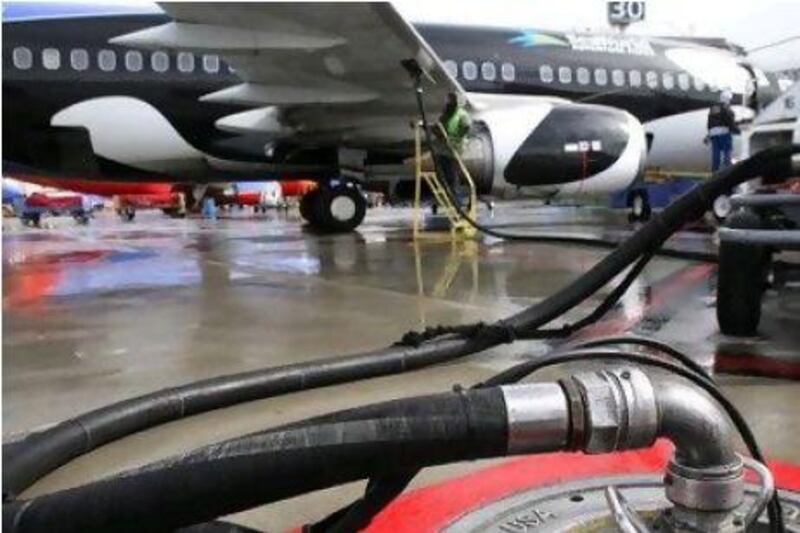Airline passengers face an increase in ticket prices as Emirates Airline and other major carriers prepare this week to levy fuel surcharges to counter oil prices that have been forced up by regional unrest.
Emirates, Qantas and Cathay Pacific said they were adding charges to battle the steadily rising cost of jet fuel.
The political turmoil in the region sent the price of crude up to US$105 a barrel last week. The price of jet fuel, meanwhile, has soared 28 per cent to a near three-year high close to $134 a barrel.
Airlines have warned further price rises could be on the way as they try to keep ahead of the price of jet fuel, which now represents as much as 40 per cent of total operating costs.
Emirates raised its ticket prices this month to cover rising fuel costs, and this week will raise prices for flights to and from Japan.
"In response to the sharp rise in the price of aircraft fuel worldwide, Emirates will increase the fuel surcharge for Japan to Dubai commencing April 1," the airline said.
The Hong Kong government recently said it had given approval to Cathay Pacific, Singapore Airlines and ANA of Japan to raise surcharges for travel in and out of Hong Kong by 18 per cent next month.
Fuel prices pose a "significant threat" to airlines, said Alan Joyce, the chief executive of Qantas.
"The situation today is very different to the last fuel crisis when the global economy was strong," Mr Joyce said. "This time, the world is still emerging from the global financial crisis and demand is still recovering."
Qantas has increased surcharges or fares four times in two months, including an announcement that it would charge up to A$10 (Dh37) more on tickets for one-way domestic and regional flights starting this week, and raise fares to New Zealand by up to 8 per cent.
Every dollar increase for a barrel of oil translates to higher fuel costs for airlines of about US$1.6 billion (Dh5.87bn), threatening to "spoil the party" this year for the airline industry and wipe much of the forecast profits, the International Air Transportation Association said.
Most carriers have protected themselves from volatile energy prices by "hedging", where they buy fuel years in advance.
Etihad Airways recently said it was 75 per cent hedged for this year, meaning it had bought most of its fuel needs earlier in the year when prices were lower.
It is about 50 per cent hedged for next year and 25 per cent the year after, and recently said it had made no decision on fuel surcharges.
Other carriers serving the Middle East that have raised fares include British Airways, which has lifted prices twice in the past three months, including one rise last month of £12 (Dh70) a flight.
With the growing global economy, airlines have so far been able to increase fares without significantly denting demand.
In the US, airlines have raised prices six times in the first three months of the year, averaging an increase every two weeks. Southwest, the US budget carrier, has had "delightful success" in raising fares to offset higher fuel prices, it said recently.
"Our traffic has held up more than well. It's been very, very strong," said Gary Kelly, the chief executive of Southwest.
But Fitch Ratings said further rises in the price of oil could threaten this.
"The industry's ability to recover higher fuel costs will be seriously challenged later in the year if another surge in energy prices begins to slow economic growth and curtail air travel demand," the ratings agency said.






